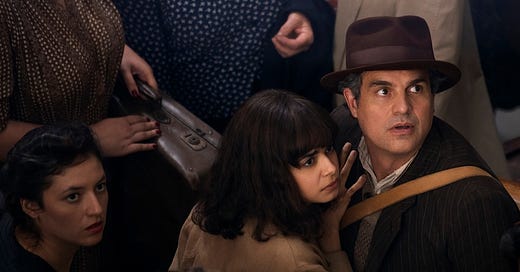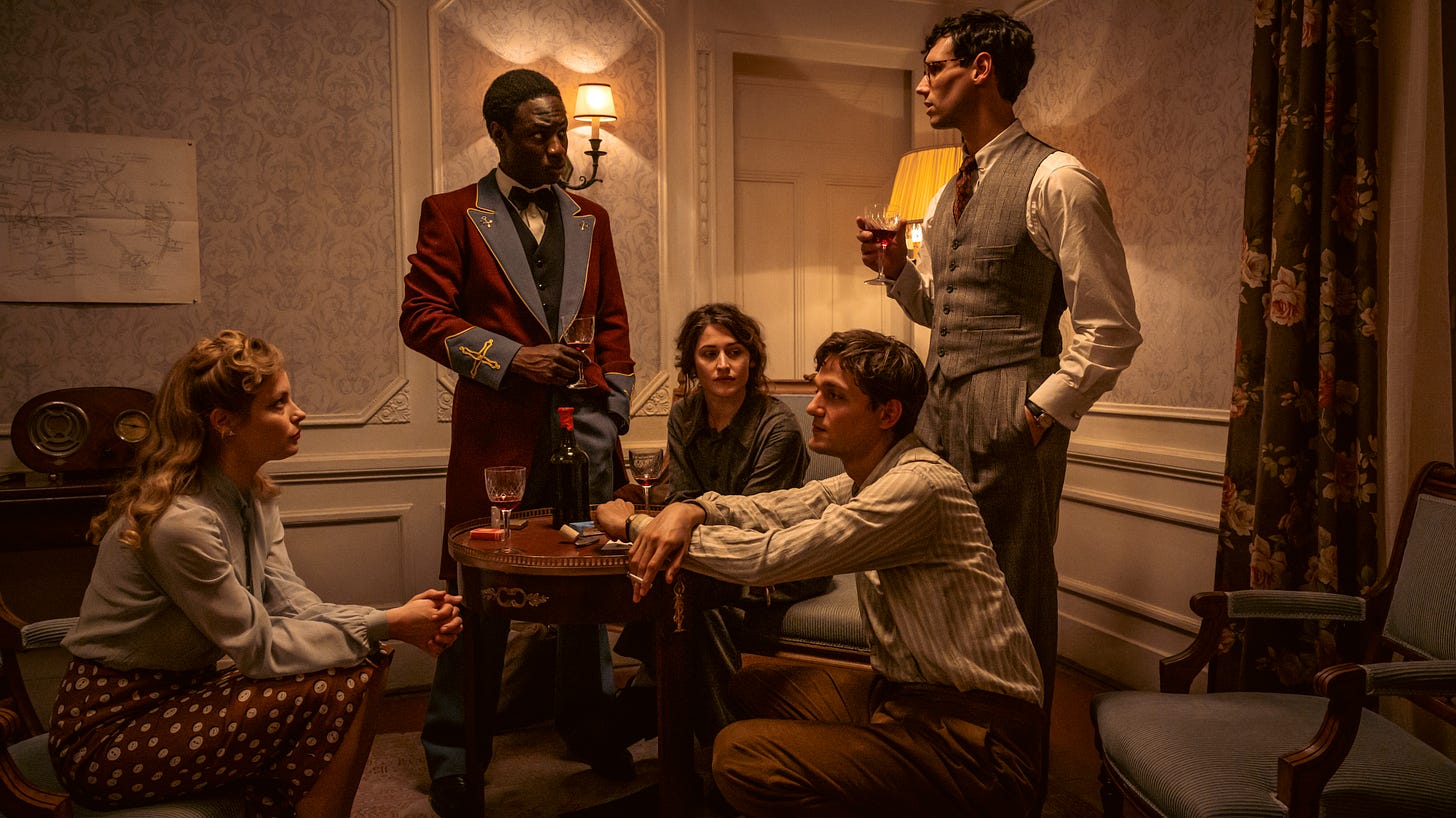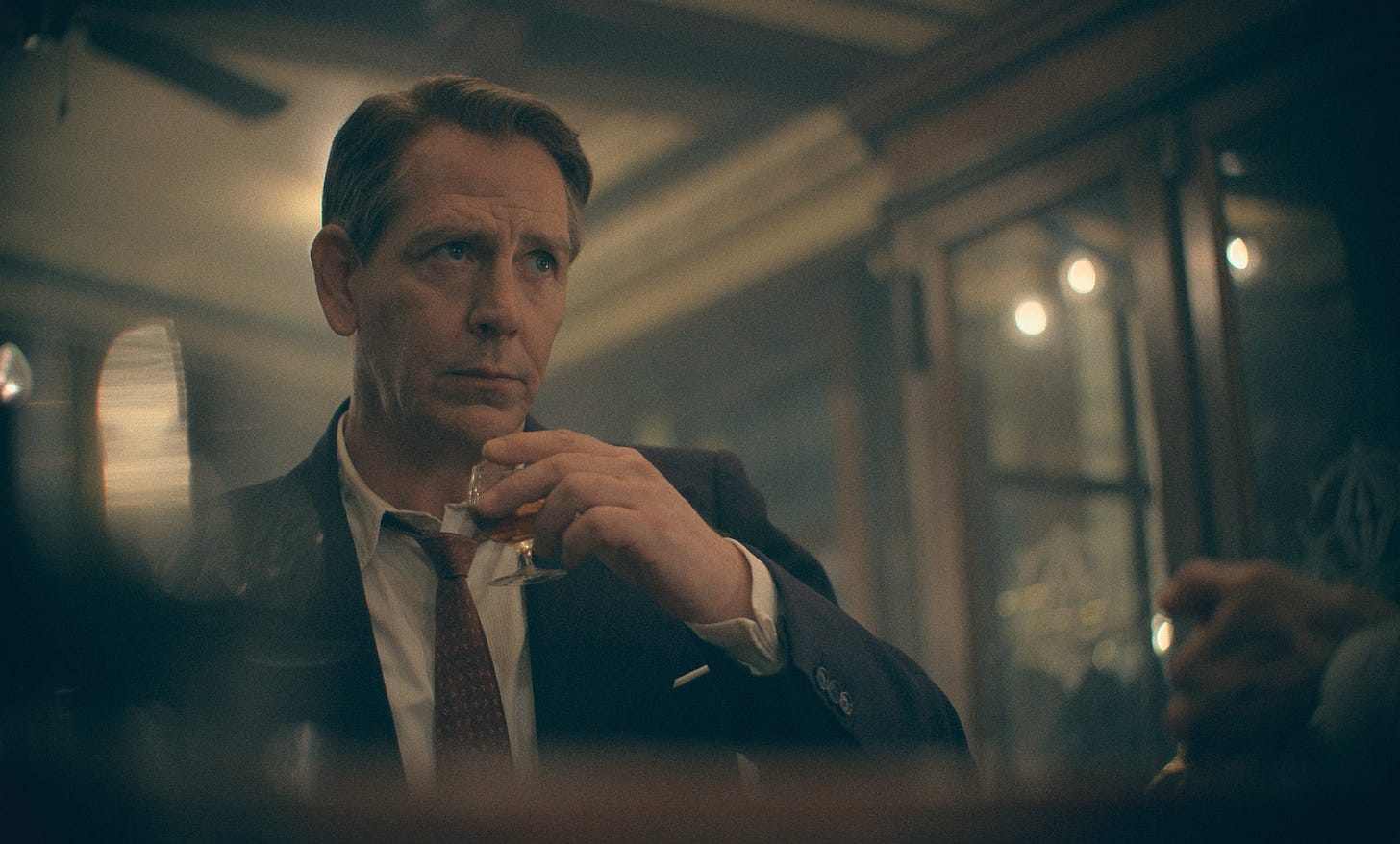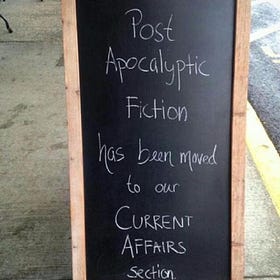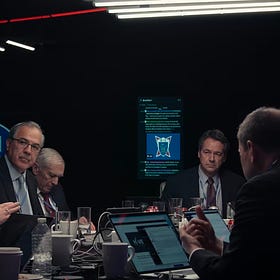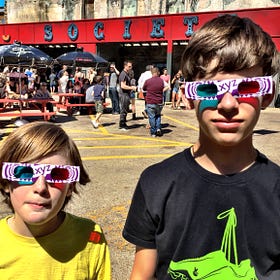This is the always free, reader-supported weekend edition of The Experiment, your official hopepunk newsletter. If you’d like to support my work, become a paid subscriber or check out the options below. But even if you don’t, this bugga free. Thanks for reading!
Have I ever told you about my friend Ray?1 He’s my social guru, the one who always knows the right thing to say. He acts like a grownup who paid attention the day they were handing out social cues for navigating Dallas’ cliques and clans. Literally everywhere I go in this city, somebody knows him, and everybody loves him. “Ray!” they’ll say approvingly, pleased that I have fallen in with a good crowd. “He’s the best!” If you did a word cloud of how people describe him, BEST, DECENT, and KIND would be among the largest words. Truer ones have never been spoken.
I’m giving Ray his flowers here because of a difference of opinion he and I have had at work. As members of the Superintendent’s executive team, we sit at a long, horizontal table at school board meetings. The trustees and Superintendent sit on a raised, semicircle dais in front of us, and the public and press sit behind us. When there’s a big crowd, I feel exposed. Once, the Superintendent texted me because people sitting in the crowd were taking pictures of my laptop screen. We are most certainly being watched.
Every school board meeting starts with three, brief events: a moment of silence, the Pledge of Allegiance, and the Texas Pledge of Allegiance, which goes like this:
“Honor the Texas flag; I pledge allegiance to thee, Texas, one state under God, one and indivisible.”2
Now, I know the moment of silence is a lawyer’s workaround on the ban on school prayer, but I dig it. In fact, I wish it were longer. The more time people aren’t talking, the better. And I’m as flag-waving as the next guy when it comes to the United States Pledge of Allegiance.3 But pledging my DC-born, west coast-reared allegiance to just one state, much less this one? No, ma’am.
Ray always did the Texas Pledge. Once, he kindly castigated me for not participating.
“We need to set a good example,” said he.
“I think I am,” said I.
And then Super Tuesday happened. The House Speaker who led the impeachment of the Attorney General, who is currently under criminal indictment and the subject of an FBI investigation, was forced into a runoff. Supporters of not only subsidizing private and parochial school tuition but homeschooling as well won enough Republican primaries to get their way in the next legislative session. Otherwise extremely conservative members of the State Board of Education lost Republican primaries to Trumpier options. Three members of the state’s highest criminal court, which had provided a check on the abuse of power by the corrupt Attorney General, lost to challengers funded by the Attorney General.
And almost all of the winning side was paid for by billionaires, including one guy in Midland named Tim Dunn who “wants to turn Texas into a Christian theocracy,” according to Russell Gold’s4 excellent profile in Texas Monthly. There is a word for a government that does the bidding of a small group of extremely wealthy people.
“We now live in an oligarchy.”
“We now live in an oligarchy,” said Ray on Wednesday morning after surveying the wreckage. On Thursday, we had a school board meeting. When it came time to do the Texas Pledge, he started to raise his right hand and then put it down. He looked at me, afraid of what it meant and shocked that it had gotten so bad that he could no longer in good conscience pledge his loyalty to a place he loved. I could only grab his right shoulder with my left hand. Ray had crossed over, and I needed him to feel not alone.
“I just couldn’t do it,” he confessed privately after the meeting. Another colleague asked what we were talking about, and Ray explained. “I really think Texas is now an oligarchy,” he said. Ray is a man so gracious that I have seen him get up from a table to shake the hand of a member of a presidential administration he opposed just because it was a decent thing to do. To hear this man lose his last illusion meant things had gotten worse.
“It scares me to hear you say those words,” I said.
“It scares me to say them,” he said.
I was a reading dad. Every night, I would read aloud from books about Dementors and Voldemort, demigods and Ares, the god of war. Katniss volunteered as tribute to a corrupt system, and Tris avoided mind control only because she was neurodivergent. And while there were wizards, mythological deities, and—most fantastical of all—reliable, high-speed train service, these stories were set in our world, if not in present day then in the near future.
At some point it hit me; popular culture was preparing these children for a dystopia. And I waited for it to come, not accepting that our dystopia had gotten ordinary, so ordinary in fact that the official response to a world that is literally on fire is the shrug emoji. While the Harry Potter generation did live shooter drills, the adults mandated better locks while doing nothing about the guns. It got so bad that a name was coined for this bleak subgenre: grimdark. The children needed grimdark books to tell them truths that adults couldn’t face.
Shortly after Donald Trump was elected and very smart people spent enormous amounts of time rationalizing that reality could not be taken at face value (Remember waiting for Trump to pivot?), a small light appeared. In July 2017, Alexandra Rowland posted this on Tumblr: “The opposite of grimdark is hopepunk. Pass it on.” The United States became more like Gilead, but in Hulu’s The Handmaid’s Tale June Osborn became a dystopian Harriet Tubman, though I’m not sure that Tubman didn’t live in a dystopia as well.
“The opposite of grimdark is hopepunk. Pass it on.”
Of course, the pre-Trump years in recent memory included some historic tragedies and screw ups, but the bruises healed, and progress was made. The Trump years, though, have left scars, some of which we look at confused, not remembering humiliation caused the injury. It was everything everywhere all at once, too much to process as real life. But even in defeat he warps our time and space. We are still stuck in the Trump Era while our brains fixate on Joe Biden’s age to make things seem more normal and protect us from accepting the horror of reality.
The Biden campaign has identified a measurable problem in their polling: Trump amnesia. They think it’s caused by people forgetting how bad things were under Trump. I think it’s because we can’t accept that it was real and want so badly to be past it that we’re unable or unwilling to accept that it happened in the first place.
We have a remarkable capacity to rationalize big changes. It’s called our “psychological immune system” where our brains work overtime to help us function in a new status quo. Because to accept that that walking insult really said and did all those things is to accept that we passed normal several exits ago and that the next six exits are for Crazytown.
Because here’s the thing: The school bells still ring, the local news is on at 5pm, 6pm, and 10pm, and the state fair is still in October. It is possible to walk outside on a spring day and see a world seemingly at peace with itself. The pharmacy still refills my prescriptions, and they still sell popcorn at the movies. There’s still a lot of normal to go around.
The other day I noticed that pop culture is trying to tell me something new. I’ve been watching three new shows, and at first I didn’t get the connection. In one, The New Look, I watch Christian Dior working to save his sister from the Nazi death camps while Coco Chanel tries to use the Aryan laws to cheat her Jewish business partners. In another, called Transatlantic, otherwise ordinary Americans in Seville get artists, philosophers, and writers out of Vichy France. Finally, there’s All the Light We Cannot See, a story about a blind girl and an eccentric professor who band together to fight the Nazis in their coastal French village.
The culture and my choices in it are leading me to questions that come up often in recent conversations: What am I going to do? Move to a safer country? Stay and protest in the streets? And if I stayed, what would I be willing to sacrifice for the safety of those I love? Where would I draw the line?
Left unsaid is that things will get worse. It’s not hard to plot the course that Trump is taking, and us right along with it. Heck, Project 2025, led by the Heritage Foundation and several Trump White House veterans isn’t being cute about it and is openly planning a presidency that does not recognize congressional oversight or judicial review. And re-electing Joe Biden won’t stop this momentum any more than his election in 2020 did. Pretty soon we’re going to be in our own version of Vichy France, and we’re going to have to decide whether we’re going to go along to get along.
Or are we going to get hopepunk? That’s what all these stories have been telling me. It would be far worse to live long with the spoiled soul of a Coco Chanel than to join up with other good guys to keep fighting, no matter what.
I am not completely certain of what happens next. I could be wildly off base. I hope I am.
But if I’m right, I’m certain about this: We win in the end. The only unknown is what choice you will make. Are our grandchildren going to be ashamed of the compromises we made, or will they tell stories of our bravery the next time the world goes mad?
Jason Stanford is a co-author of NYT-best selling Forget the Alamo: The Rise and Fall of an American Myth. His bylines have appeared in the Washington Post, Time, and Texas Monthly, among others. Follow him on Threads at @jasonstanford, or email him at jason31170@gmail.com.
Further Reading
Why we walked out on Marc Maron
"And how are the children?"
We set up a merch table in the back where you can get T-shirts, coffee mugs, and even tote bags now. Show the world that you’re part of The Experiment.
We’ve also got a tip jar, and I promise to waste every cent you give me on having fun, because writing this newsletter for you is how I have fun.
Buy the book Texas Lt. Gov. Dan Patrick banned from the Bullock Texas History Museum: Forget the Alamo: The Rise and Fall of the American Myth by Bryan Burrough, Chris Tomlinson, and myself is out from Penguin Random House. The New York Times bestseller is out in paperback now!
Not his real name.
An odd fact is that Texas is, in fact, divisible. A 1930s congressional resolution authorized Texas to split into five separate states. Sponsored by a Texan, the aim here was to quintuple Texas’ senate seats should it so choose. It has not, but Texas remains literally divisible. https://www.smithsonianmag.com/history/more-150-years-texas-has-had-power-secede-itself-180962354/
In fact, while substitute teaching on Friday, I got a class of middle school students to stand for the Pledge, something I count as a victory, however small.
Full disclosure, Russell is a friend, and I think everything he writes is excellent, so I’ll cop to a bias here, but in this case I am certain I am correct.

